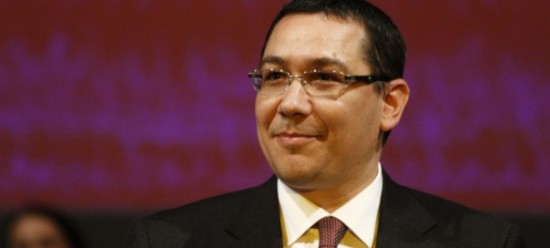Romanian PM steps down as party leader over corruption probe
Romanian prime minister Victor Ponta said on July 12 that he was stepping down as leader of the Social-Democrat party, the majority partner in the government coalition, because of an ongoing investigation pursued by the country’s anti-corruption prosecution office DNA.
In a letter to senior party members, which he posted on his Facebook page, Ponta said that he had to follow the example of other party officials who gave up their positions when under investigation. “Other colleagues have temporarily stepped down from political positions to clarify their legal standing. I cannot ask others to make a sacrifice I am not ready to make myself,” he wrote in his letter.
Ponta returned earlier this week from Istanbul after several weeks spending convalescing after a knee operation, a move that, his critics said, was meant to deflect attention from the investigation into alleged corruption and money-laundering dating back to before he became prime minister.
Last month, DNA prosecutors asked Romania’s bicameral parliament permission to formally press charges of conflict of interest against Ponta, who is alleged to have appointed Dan Sova, a senator for the social-democrat party, to several ministerial positions between 2012 and 2014 after having financially benefitted from his relationship to Sova.
Specifically, Ponta’s legal firm received monthly payments in 2007/08 from Sova’s legal firm for fictitious services that were never carried out, for a total of about 250 000 lei (or 56 000 euro at current exchange rates).
Ponta is also facing potential charges on 17 counts of document fraud, tax evasion and being an accessory to money laundering, stemming from DNA’s investigation into Sova’s contracts with two power plants, in which he is accused of complicity to mismanagement. Earlier this week, the upper chamber of parliament, the senate, narrowly defeated a motion authorising Sova’s arrest on those charges.
Parliament shot down the indictment request, but cannot prevent prosecutors from pressing ahead with their investigation.
Ponta said that he trusted his deputy leaders to run the party in his stead. He said he would remain sidelined until he proved his innocence, vowing not to run for any party post at the upcoming party congress in November if the case against him is not settled.
He said that he would focus on his duties as prime minister – a position that, as several of his deputies said after his letter was made public, would entitle him to participate in meetings of the party’s executive bureau.
Ponta managed head off internal dissent and stay on as party leader after his defeat in presidential elections last year, which local analysts attributed to the party’s unwillingness to risk facing early elections in case he stepped down as prime minister. Romania is due to hold scheduled parliamentary elections at the end of 2016.
The Sofia Globe July 13, 2015

